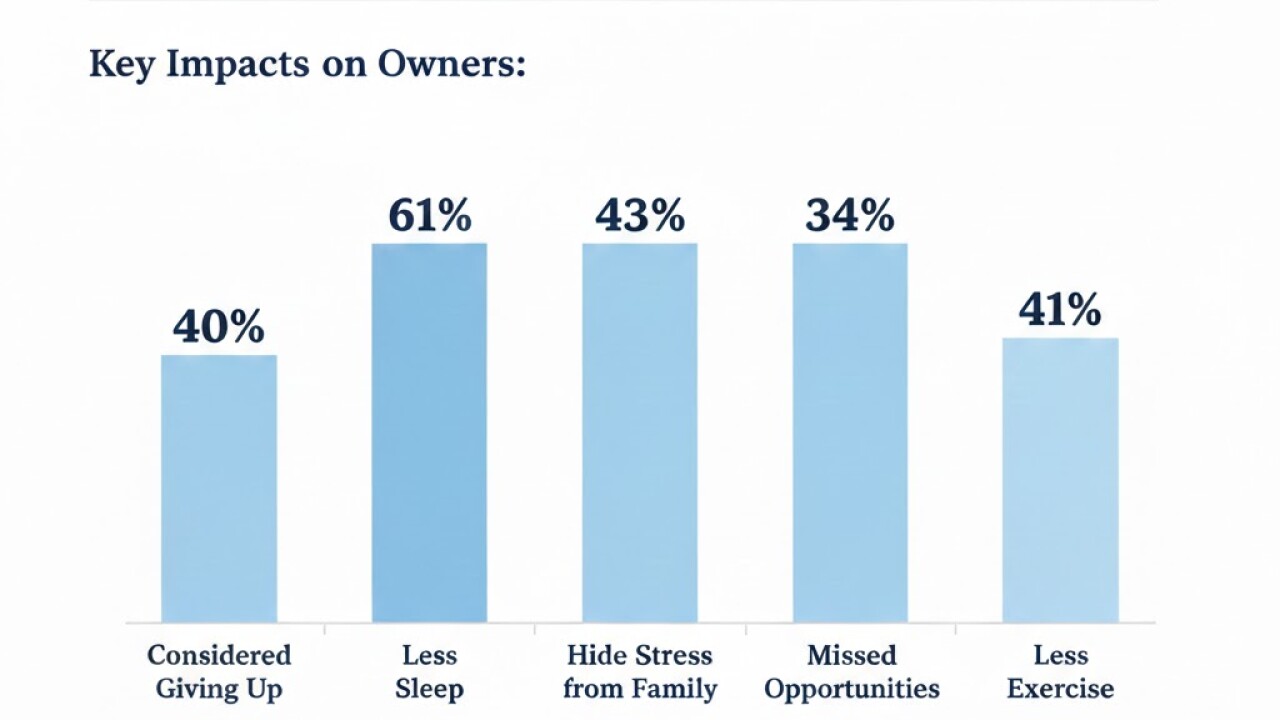Many people judge a troubled economy by what they see about the stock market on the 10 o'clock news. Yet the stings from poor market performance and the overall sluggish economy over the past four years are still dampening the confidence of individuals throughout the U.S.
Economic indicators do point in an improving direction for the U.S. economy, but there are headwinds and the fear of a "black swan" event that could set the economy back yet again. The headwinds include U.S. deficits, political and economic uncertainty, sovereign debt around the globe, political unrest on foreign soil, unemployment, and a continued soft housing market here in the U.S. And in these troubled economic times, we have a new twist to the story. This twist is that of paying down our debts, or de-leveraging. Everyone, from the federal government through state and local governments, right down to individuals, needs to reduce their burden of debt. The consequences of this de-leveraging are not clear, but they could cause a few more possible bumps in the economic picture.
Your clients have concerns about these headwinds. But many are still reeling from the effects of whiplash when their portfolios were trimmed in 2008. Many were so panic-stricken that they moved out of the equity markets and into something more defensive that did not have the same restorative potential that equities have shown since the markets bottomed out in 2009. Their concerns are still driving a lack of economic confidence among the American people at large.
This is not the first time that Americans have not felt very economically confident when financial markets have rallied and economic indicators appear headed in the right direction. Many have reasons beyond their losses of 2008 and the possible headwinds, and may be micro-focused on the issues impacting them now. These issues exist at all levels of income and net worth, and include unemployment, tax uncertainty, low interest rates, volatile investment markets, credit availability or whatever else may be causing the general, or their personal, economy to be under duress.
Let's start with the big picture of a troubled economy. Even though the leading economic indicators are improving, that doesn't mean that your client has to plan for improvement. If a client wants to plan for more trouble in the economy, they may choose to be more defensive in their investment portfolio. It doesn't matter what your tea leaves, investment committee or sub-advisor says. That client wants to be defensive and you better have a strategy to suit their risk tolerance.
Your first action item may be to update any forecasts or retirement projections that you've done. This will let you develop an understanding of the rate of return required for your client to meet their financial needs and objectives, and opine as to whether their desired conservative investment posture is the right solution. If your forecasts suggest that the client may not be able to create sustainable lifetime income from their current conservative positions, then you must alert the client that they will need to either earn more or spend less. A detailed review of their holdings may suggest that earning more is possible. A similar detailed review of their cash expenses may reveal ways to save money.
We can calculate what a client needs to earn on their portfolio in order to create a lifetime of sustainable income with a fair amount of accuracy. The task then is to create a portfolio where the likelihood of obtaining that return is greatest, with the least volatility possible. Traditional portfolios alone may not get you there in today's environment. The typical portfolio may need to trim risk without compromising too much in the area of returns, and to do that, the portfolio may need to diversify among asset classes not used before. Perhaps areas like real estate, emerging market debt, currencies, private equity, market-neutral or even hedge funds may be appropriate.
Don't forget to forecast large lump-sum types of expenditures that we all get hit with now and then. Expenditures for items like water heaters, roofs, driveways, and home maintenance and general repairs need to be included, as do the unusual possible expenses for accidents or surprises that will require cash. Clients feeling pressure may be delaying routine maintenance now, but that just means that they'll either have a lower selling price when they sell their home, or be hit by a larger-than-usual bill when all of these items break down at the same time.
This same client who believes that the troubled economy will last is probably fairly pessimistic about many things, and to feel good about their financial situation, the defensive positioning may need to be prevalent throughout all parts of their financial plan.
On the risk management side, one would be wise to make sure that all risks are addressed and dealt with -- which means that you are making one of three decisions:
1. Transfer the risk by insuring against it;
2. Avoid the risk by avoiding the activity that gives rise to the risk; or,
3. Accept the risk, or, in effect, self-insure against the possible loss.
In a troubled economy, the worried client is probably best off transferring the risks, and insuring against them. Of course, this assumes that properly covering all risks is affordable, given the cash flow and income that you anticipate for this client.
I advise against pre-judging here. For example, suggesting that a client not buy long-term-care insurance because you are concerned that they cannot afford it should instead be framed in terms of the consequences of ownership and the consequences of an illness that is not covered. If the cost of LTC coverage is $10,000 per year, you can easily assess the consequences of that cost on their retirement forecast. Now the decision to cover that risk can be made with all of the pertinent facts at hand. Assessing the impact of an uninsured long-term health care issue may lead to a planning discussion of a different color. This discussion could be about the asset ownership moves needed to prevent any surviving spouse from becoming impoverished or the consequences of running out of money or using your home equity to pay health care costs.
THE NEW NORMAL
Care should be given to the level of spending for clients during a troubled economy. Recently I heard from a very successful retired executive who is driving a four-year-old Toyota, instead of a newer, high-line car. He further voiced his satisfaction with that level of compromise due to the hit that his portfolio took in 2008. He, like many, took the full brunt of the downturn and then repositioned to safer ground, and did not participate in much of the recovery.
Lifestyle changes, especially to the downside, are never easy to swallow. But if your client wants to plan for a troubled economic landscape, trimming sooner is always better than waiting until you start to feel signs of trouble.
Uncertainty over tax policy makes tax planning a very difficult issue right now. Taxpayers and professionals are confused and in a quandary over what may happen next. In fact, I'd say that our elected officials have made such a mess of the Tax Code that the safest bet for any taxpayer may simply be to hedge your bets. Make some plans as if taxes are going to stay the same, and then implement other plans that may be defensive in favor of a higher tax rate. Unless you expect a large decline in income, perhaps the only safe posture is to assume that your tax rate is not going down any time soon. This is also likely to be the case in your state. States are under increasing pressure from their own fiscal woes, and looking to new and old ways, such as tax increases, to boost their coffers.
On the estate tax side, confusion over what the law will be is just as paralyzing. Like income taxes, no one knows what our federal unified credit will be come Dec. 31, 2013. As a result, many are doing nothing. Of course, for the client who is very pessimistic about the economy, the likelihood that they will take advantage of the $5 million gifting threshold is not high.
This client may instead choose to own large life insurance policies in irrevocable trusts, rather than gift away large amounts that they may later regret. They may also consider owning valuable assets in protected entities such as family partnerships and limited liability corporations, whereby they can make minority interest gifts, removing large amounts of value from their taxable estate, and not materially impair their cash flow with clever document drafting.
Whether the economy is troubled or not is a judgment call. No one can deny that we are facing major headwinds, and no one can accurately assess the consequences of the de-leveraging process that is now just beginning. The ones who will get in trouble are the ones who do not plan at all. And if they come asking what you did for them to plan for what they wanted, it would be best to show the work that you did with them today to assess their feelings and tolerance for risk, and the moves that you made each and every year to accommodate their goals and objectives.





